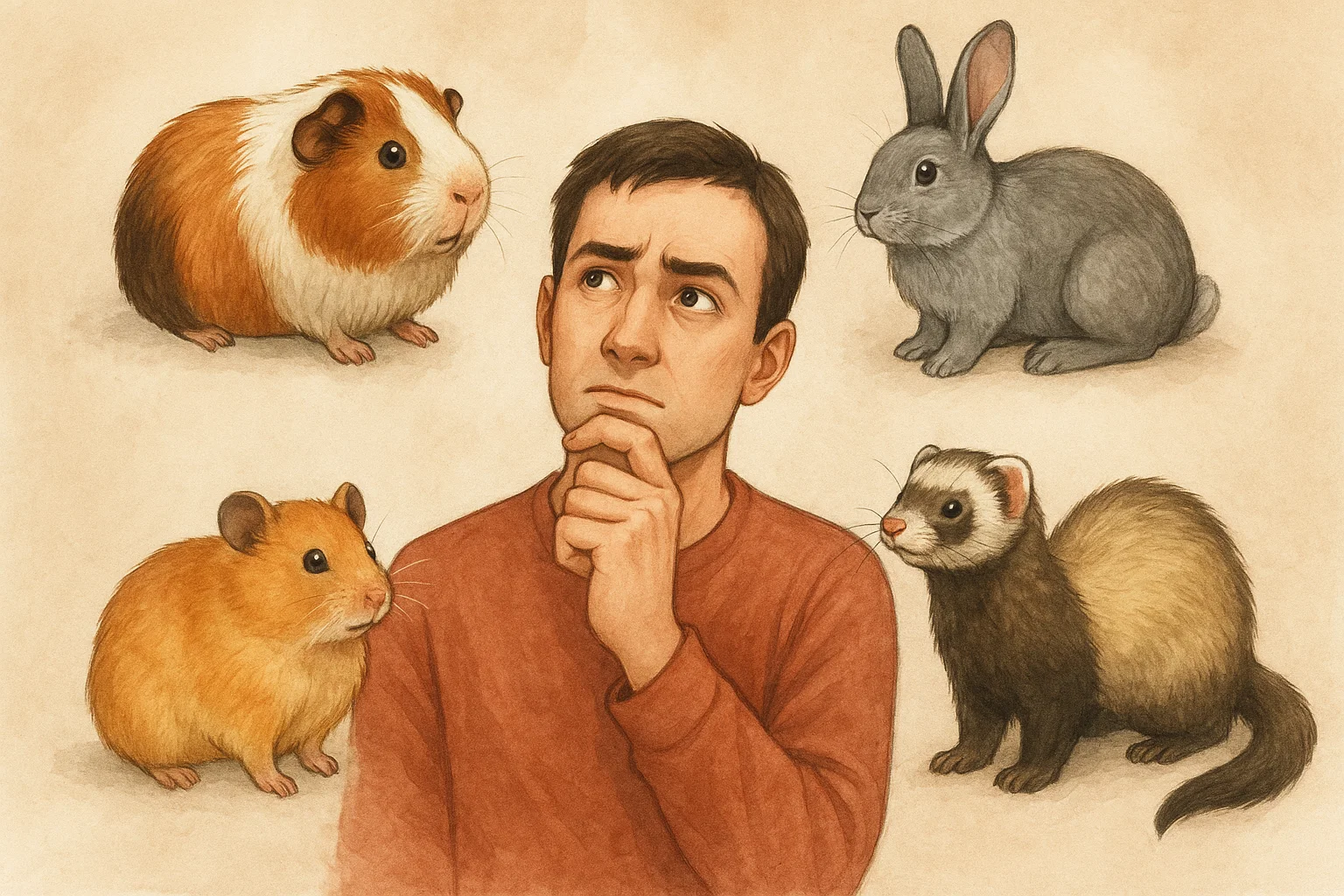Small furry mammals make delightful companions. They’re often low-maintenance, space-efficient, and brimming with personality. But despite their size, these pets come with unique care needs and temperaments. Whether you’re considering a hamster, guinea pig, rabbit, or ferret, it’s important to understand what fits your lifestyle, living space, and expectations. Here’s a comprehensive guide to help you choose the right small mammal for your home.
Why choose a small mammal?
Small mammals are often ideal for people with limited space, allergies to cats or dogs, or those seeking a lower-maintenance pet. They’re especially popular for children or as starter pets, though this can be misleading—many require significant care and commitment.
Factors to consider
1. Time and attention
Each animal has different social needs. For instance:
- Guinea pigs are highly social and do best in pairs. They require daily interaction and gentle handling.
- Hamsters, especially Syrian hamsters, are solitary and often nocturnal. They’re relatively low-maintenance but not ideal for interaction during the day.
- Rabbits need several hours of supervised time outside their enclosure and thrive on companionship, human or bunny.
- Ferrets are intelligent, playful, and require lots of mental stimulation and interaction.
Ask yourself how much time you can realistically spend with your pet each day. Some, like ferrets, need a few hours of playtime, while others are content with less interaction.
2. Space requirements
Don’t let their size fool you—many small mammals need plenty of room to explore and play.
- Rabbits require spacious hutches and free-roaming time. A small cage isn’t enough.
- Ferrets need multi-level cages and supervised out-of-cage play daily.
- Guinea pigs need large, flat habitats with space to run and hide.
- Hamsters may seem content in small cages, but they actually require more floor space than most people assume—at least 450 square inches of continuous floor space.
Evaluate your available space before selecting a species. Overcrowded environments can cause stress and health issues.
3. Lifespan and commitment
Some small pets live longer than you might expect.
- Hamsters: 2–3 years
- Guinea pigs: 5–7 years
- Rabbits: 8–12 years (some even longer)
- Ferrets: 6–10 years
If you’re looking for a shorter commitment, a hamster or mouse might be appropriate. For longer-term companionship, guinea pigs or rabbits are better choices.
4. Noise and activity patterns
Think about your schedule and tolerance for noise.
- Hamsters are nocturnal—expect them to run on their wheels at night.
- Guinea pigs are vocal during the day and love to “wheek” for food.
- Ferrets are crepuscular (most active at dawn and dusk).
- Rabbits are generally quiet but active and playful.
If you’re a light sleeper or want a pet that’s active during your waking hours, avoid nocturnal species.
5. Grooming and cleanliness
Some small mammals require grooming, while others are relatively self-sufficient.
- Rabbits need regular brushing and are prone to digestive issues if they ingest too much fur.
- Ferrets can develop strong odors if not cleaned regularly and require litter training.
- Guinea pigs need routine cage cleaning, especially since they don’t use a litter box.
- Hamsters are usually tidy and clean themselves but still need cage cleaning every few days.
If you’re sensitive to odours or want a tidy companion, consider a hamster or short-haired guinea pig.
Which small furry mammal should you choose?
Here’s a quick guide based on lifestyle:
For young children: Guinea pigs are gentle, social, and easy to handle (with supervision).
For busy professionals: A hamster may be a good fit due to its low interaction needs and short lifespan.
For interactive pet seekers: Ferrets or rabbits offer high levels of engagement and personality.
For small spaces: Mice, gerbils, or dwarf hamsters can live happily in compact enclosures.
Adoption and responsibility
Always consider adopting from a rescue or shelter. Many small mammals are surrendered due to misunderstanding their care requirements. Avoid impulse purchases from pet stores, and do your research thoroughly before bringing one home.
Also remember: even the smallest pet deserves daily care, mental stimulation, and a clean, enriching environment. They may not bark or meow, but they feel pain, loneliness, and stress just the same.
Conclusion
Choosing a small furry mammal as a pet can be incredibly rewarding—but only if you match the right species to your lifestyle. Consider how much time, space, and care you can provide. The best pet is not just the cutest or smallest one, but the one whose needs align with your abilities and expectations.
From the curious ferret to the gentle guinea pig, there’s a furry friend out there waiting to make your home a little warmer—and a lot more fun.
